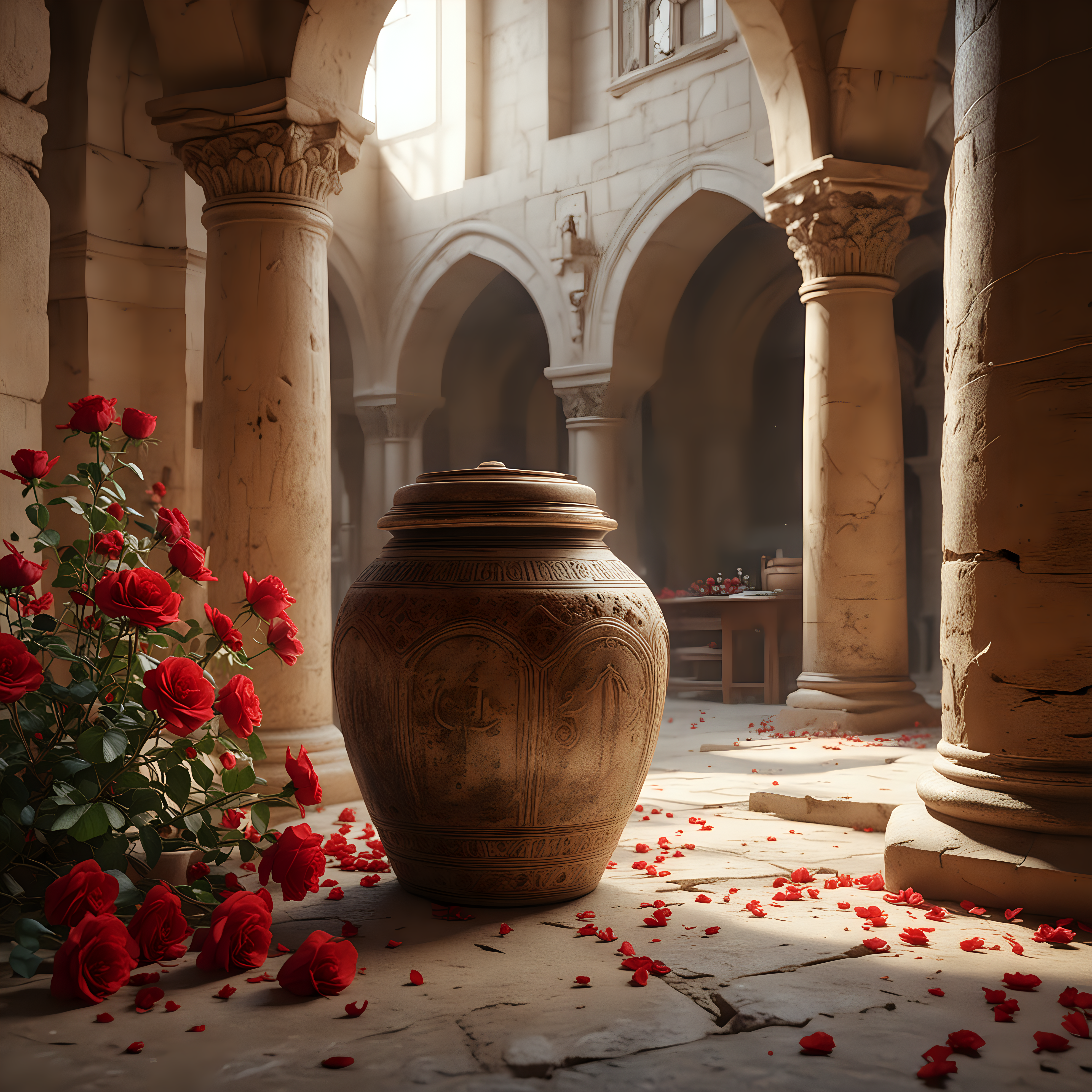If you read my previous post about the gifts of the Holy Spirit, you might recall one such gift called the gift of Counsel, which helps strengthen our inner compass by heightening our spiritual intuition. But a compass only works if you know how to read it. That’s why we need to dive a bit deeper into intuition and the related spiritual gift of discernment.
Intuition is the ability to understand something immediately (based on feeling) without the need for conscious reasoning. Discernment is the ability to maintain your integrity by aligning your thoughts and actions with your intuitive guidance.
To put it crudely, intuition tells you, “Hey, do this!” and discernment says, “Yeah, listen to that guy!”
The problem isn’t that we don’t know what our intuition is saying. The problem is that we neglect to respond…because we think it’s optional. But it’s not! Your intuition is part of who you are. When you ignore this inner guidance and rely on external sources instead, you’re neglecting a part of yourself. So, if you’re ready to stop neglecting, read on to learn more about:
- The role of intuition and discernment in our spiritual lives
- The difference between intuition and discernment
- Why we struggle so much to follow our intuition
- How we overcome those struggles to become who we are meant to be
Intuition
Before we even get into talking about spirituality or mysticism, the first thing to point out about intuition is that we are all born with it. Even if you think you’re pretty lousy at tapping into or following your intuition, you have it. And it is there for a reason. We need our sense of intuition to help us make decisions and solve problems that our conscious minds and reasoning skills cannot adequately handle.
Basically, there are three types of situations that push up against the limitations of our conscious minds:
- not enough time
- not enough information
- too much information
Imagine yourself as a forest-dwelling human long before the days of civilization as we know it. There’s a rustling in the bushes nearby. Your survival depends on correctly assessing at that moment whether you should freeze in place, run, or simply carry on. You don’t have very much information: you can’t see what’s in the bushes. You also don’t have much time. If it is indeed a predator of some kind, it can leap out at any moment. Or, imagine you are starving and desperately searching for food. You come across a type of mushroom you’ve never seen before. No amount of deliberation is going to help you here. You simply don’t have enough information. You have to make a decision by some other means.
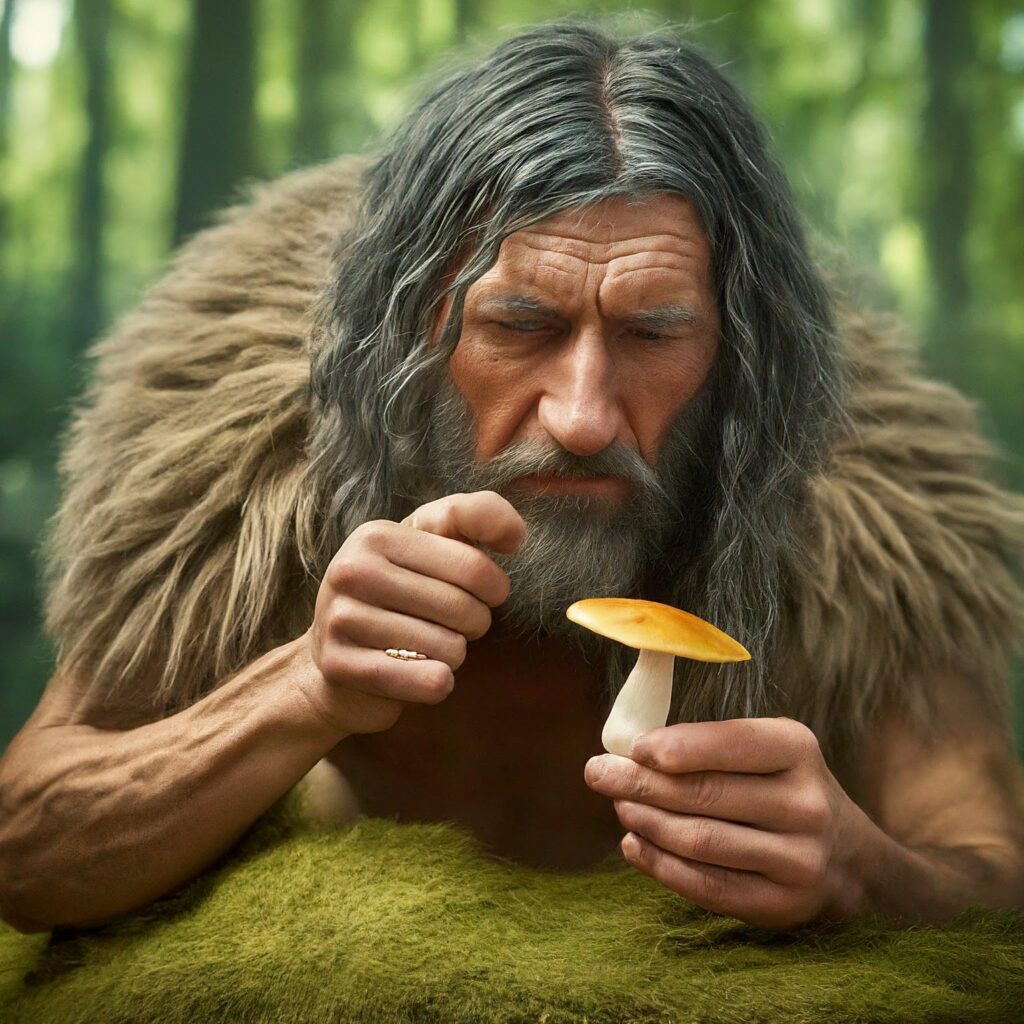
The point is that intuition is an ancient, deeply rooted, and integral part of who we are. And while we no longer have as many day-to-day problems with snakes and leopards or questionable mushrooms, there are still plenty of scenarios we encounter in our lives where intuition is an important tool.
Why is Intuition Important For Us?
More common in our modern-day society is that third type of problem—the information overload problem—where intuition really comes in handy. Should I trust this person? Which college should I go to? What is the next step I should take with my career? Should I end this relationship or keep investing in it? How do I parent at this moment? How can I support this person I love? There’s so many factors and variables that we can ponder endlessly when it comes to these types of decisions. But oftentimes, the answer simply isn’t clear, no matter how much time we spend weighing the pros and cons in our heads. Eventually, a decision must be made.
We ask ourselves these big questions, and we usually get a gut feeling about it (even if it’s not the answer we want). That gut feeling is our intuition. The question is, do we follow through on that answer, or do we shoot it down? Why or why not?
What Is The Spiritual Significance Of Intuition?
Intuition can guide you to do the right thing, find creative solutions, and make wise choices, but it’s also the foundation of living a spiritual life because it contributes to your overall well-being and the alignment between your values and actions. When you trust your intuition and use it to inform your choices, you become a more authentic version of who you are.
Our spiritual practices, like mystical prayer, help us connect to the Divine and hear its voice of counsel within us. Prayer gives us a better glimpse into who we are meant to be. It may endow us with or strengthen some of the character traits we need to actualize our authentic self. But we still need to do our part to carry ourselves the rest of the way there. We need to think, decide, and act God’s will out in our day-to-day lives. Intuition enhances our inner compass, which points us in the direction of becoming who we were born to be.
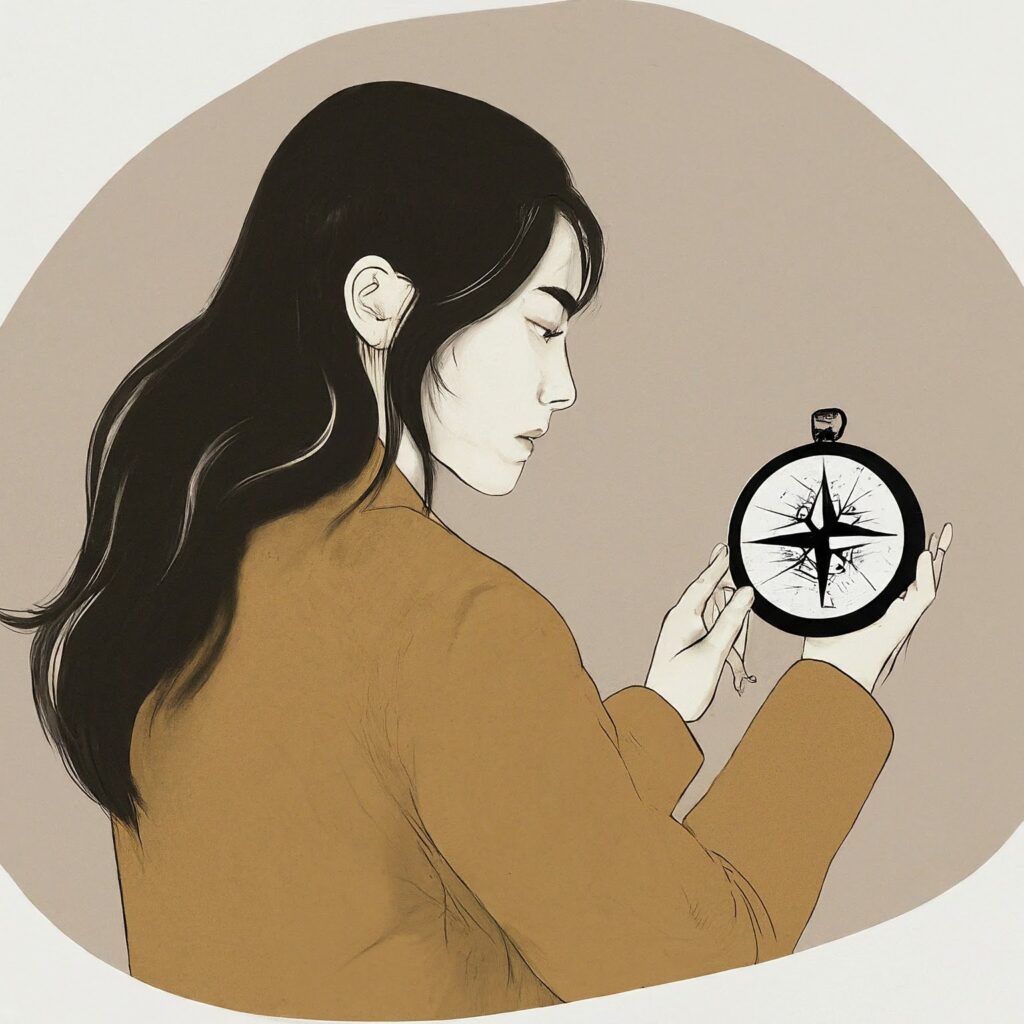
However, our socialized self is based on a very different image of who we were born to be: the functioning member of society with a steady 9-5 job, 2-3 children, and a white picket-fenced house in the suburbs (or some version of this). There’s nothing inherently wrong with any of those things. It’s just not the whole story. It’s the social script, which is the socialized conscious mind’s story. But our intuitive self is trying to tell a very different story. It is a story about who we should become, rather than what things we should acquire. These two stories actually need not be in competition with one another. Your intuitive guidance works in harmony and not in opposition to intellectual and emotional resources.
What is Discernment?
There’s a split second after we get an intuitive hit where we get an emotional response to the intuitive guidance—and it’s often the emotional response that influences our decision of how to move forward rather than the intuition itself. That can have devastating consequences because we can talk ourselves out of following our intuition. THIS is the moment you need to apply Discernment. Discernment is the ability to recognize the difference between your intuitive intelligence and whatever else might get in the way—fear, self-sabotage, the voice of the ego.
It’s all about putting together the perfect inner compass.
Our spiritual practices, like prayer, are going to help us get in touch with our deepest values. It’s how we build and calibrate the compass. Intuition is going to point us in the direction that we need to go to actualize those values. It’s the compass itself. Discernment is like the navigator in us who knows how to read the compass and chart an appropriate path. The navigator keeps constant track of the direction you need to head in, but also knows the path to get there is rarely a smooth, straight shot. It is, therefore, constantly on the lookout for obstacles and should know how to get around them.
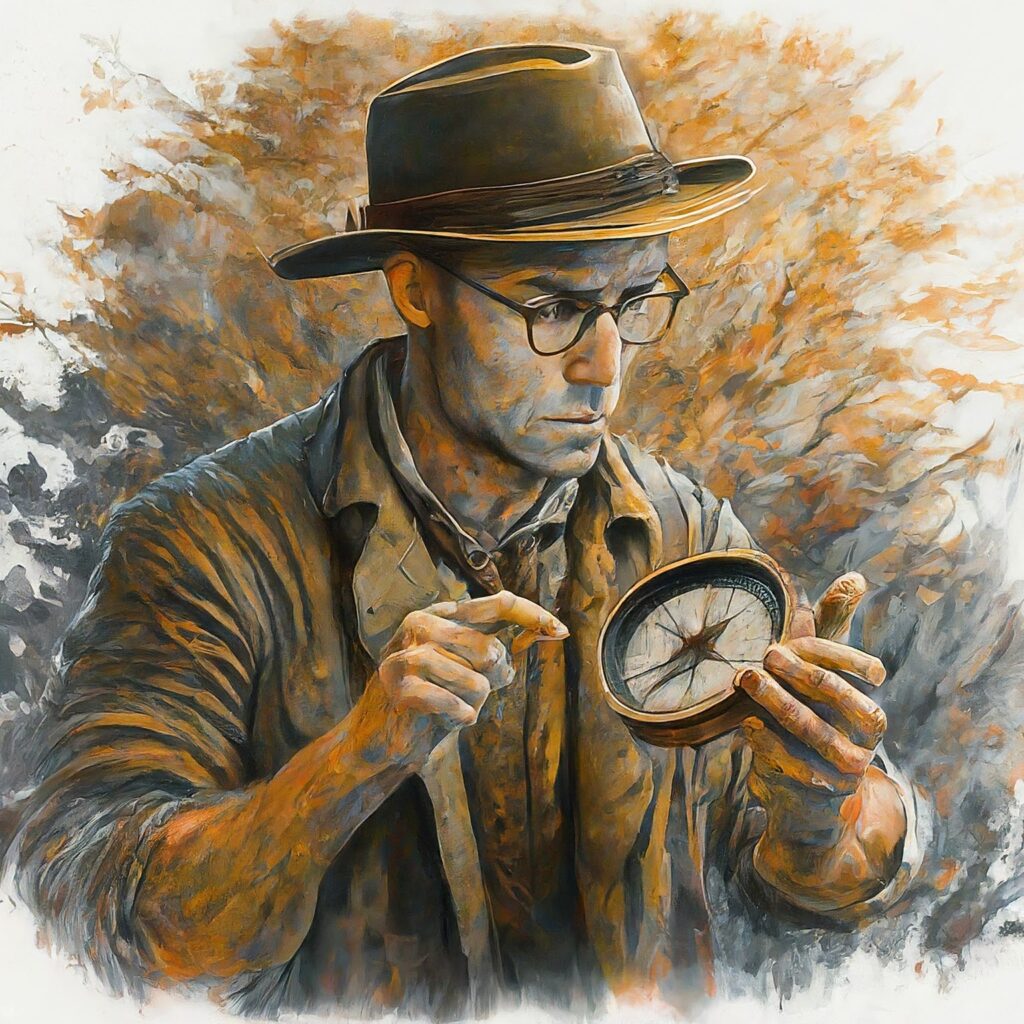
Barriers To Following Intuition
“Everything in the world knows how to seek for knowledge that they do not have, but do not know how to find what they already know.”
Chuang Tzu, Daoist sage
Deep down, you already know what the Divine self in you wants because your intuition is always speaking to you. It is telling you what God desires most for you, which is also what you desire most for yourself.
So, what’s stopping you from acting on that inner guidance? It’s one of two things: either you’re not skilled at listening to the voice of your intuition OR you’re absolutely terrified of what you’re hearing, so you subconsciously block your gut feelings. The REAL question for most of us is not, “What is my intuition telling me to do?” Rather, the question is, “How can I get out of my own way so that the difference between fear and intuition becomes obvious?”
The story about our forest-dwelling ancestors shows how deeply intertwined intuition and fear are in our psyches. So, it’s natural for your initial reaction to be one of fear. The things your intuition whispers to you threaten the safety of your picketed-fenced life, just as intuition could make or break the safety of our ancestors.
Discernment is the thing that takes fear out of the equation when it comes to intuition. And when you can follow your intuition without fear, you’ll be doing yourself a tremendous favor, but will also have enhanced your ability to serve others. As the Baha’i prophet Baha’u’llah says, “Love is a light that never dwelleth in a heart possessed by fear.” When you follow your intuition without fear, you are following the path of the Divine, which is also the path of Love.
My Introduction To Discernment
There are many references to discernment in the Bible, beginning as early as Genesis, when Pharaoh appoints Joseph as his advisor, saying, “Since God has made all this known to you, there is no one so discerning and wise as you.” So, discernment is clearly an important spiritual concept. It’s just not one that’s bandied about with the same frequency as “intuition.”
It wasn’t until I read a book called The Spiritual Exercises by St. Ignatius of Loyola that I really began to think more deeply about discernment. Ignatius’ teachings are powerful and have had a big impact on my spiritual development. So, first I want to share a bit about his life.
Ignatius of Loyola was born in the gorgeous Basque region in Spain in 1491. He was a soldier interested in social climbing, riding, dueling, and romancing women. One day he’s called to fight a battle in the city of Pamplona. It went poorly. How poorly? Getting your femur shattered by a cannonball and passing out on the battlefield poorly.
Fortunately, though, the opposing soldiers who found him took pity on Ignatius, bringing him to their doctors in Loyola, who conducted surgery to put his leg back together. While he’s recovering from this dark time in his life, Ignatius reads the only book in the house, which is about the lives of Francis of Assisi, Mary Magdalene, and Hildegard of Bingen. He feels inspired and dreams about doing what the saints did—living a life of spiritual service. When he imagines this new life, his heart flowers open and he feels the kind of pure joy he felt when he was a child.
St. Ignatius’ Keys to Discernment
When his leg heals, Ignatius sets out on a pilgrimage that changes him forever. As Ignatius walks through the breathtaking landscapes of Northeastern Spain, dressed as a beggar, he comes to appreciate stillness, solitude and reflection. This path is the focal point of our most popular Dancing Spirit Tour, The Camino Experience. Walking the same literal path of Ignatius is truly an awe-inspiring experience.

It is so awe-inspiring for Ignatius that he decides to devote the rest of his life to serving God. He retreats to a cave beside a river near Manresa. He lives here for 10 months, spending hours every day in solitary prayer and having mystical visions. Today, there is an ornate baroque church built around this cave. When you sit here in silent prayer, you can almost feel the heartbeat of the Earth, surrounded by layers of rock.
This is where Ignatius writes what he called The Spiritual Exercises, which track the interior movements of the soul that guide your intuition. Based on his own experiences, he proposes 14 guidelines that impact how well you can listen to and implement your intuitive guidance. One of these is called “Spiritual Consolation,” or “Touching The Holy,” which can help unlock the gift of discernment.
Spiritual Consolation: Touching The Holy
To describe Spiritual Consolation, I’d like to share another story, that of Pierre Teilhard de Chardin, the Jesuit priest and scientist who was no stranger to St. Ignatius’ teachings. It was the 1930s and Pierre was on a paleontology assignment in China. Early one morning, he climbs a mountain. He arrives at the top, huffing and puffing, just in time to see the warm sunlight sparkle over the horizon at dawn.
As he watched the sunlight slide along the landscape, illuminating the fields in the valley below, saturating them in brilliant yellow hues, it seemed to him that God was unveiling a masterpiece: the beauty of Spirit was taking form in Nature. The light glided closer and closer until it reached Pierre and kissed his face. In that moment, Pierre felt like his own physical being was being embraced by the Divine, establishing an unprecedented harmony between body and soul. It became clear to him that the outer landscape—the mountain, the valley, the singing morning birds—and the inner landscape of his soul—are mirrors of one another.

It was an insight that prophets, saints, and mystics have reported across religious traditions, like the Buddha who said in his last sermon,
“When the self and the external world become one, eternal serenity is enjoyed […] Become one with no barrier between the self and the outside world.”
The Buddha’s Last Sermon
This is what it means to Touch The Holy. Such moments are strengthening, nurturing, and filled with hope and energy for the future. They carry you to an optimal state of spiritual receptivity, where the ideas, inspiration, and actions that follow will naturally align with your intuition because that’s where your intuition is pointing to in the first place. Your compass is forever pointing to this state of pure Beingness.
From Consolation To Discernment
Your sense of discernment is forged in the Divine flames of these moments of spiritual consolation because, in those moments, everything is clear. The fears or resistances that might normally stop you in your tracks when your intuition nudges you in a certain direction cease to exist here because you’re elevated to a level where fear has no power over you. Your heart and mind are simply drawn out of yourself.
The question, then, becomes, “What’s your sunrise-on-the-mountaintop experience? What lifts you up out of yourself and connects you with the deeper meaning of your life?”
Now, let’s be clear. Spiritual consolation is not the same as simply feeling good. To understand the difference, notice the direction of your attention when you have a sacred experience. Check which way your compass is pointing. Our ordinary feel-good experiences are intrinsically focused on ourselves, while genuine spiritual consolation shifts the focus entirely to God.
I tend to feel spiritual consolation when I’m guiding pilgrims to sacred places around the world and I’m privileged to witness the spiritual sparks flying, watching people scribble fiercely in their journals after a mystical lesson triggers an “aha!” moment for them. In those moments, I feel a fire burn within me that takes me out of myself and places my entire focus on service. The barrier between self and the outside world dissolves.
Whatever it might be for you, these moments are true gifts. But their impacts extend far beyond that single moment. Following your intuition is not a momentary decision-making strategy. It’s a lifestyle. These moments of spiritual consolation will inspire your inner navigator, but it’s up to you to hold on to those moments and use them to fuel your day-to-day skills of discernment and intuition.
Becoming Who You Were Meant To Be
It’s okay if you still don’t know how to facilitate moments of spiritual consolation in your life. Start small by thinking about the conditions of your everyday environment and ask yourself how they support or diminish your spiritual growth. Consider how your habits impact your spirituality: how you communicate with your loved ones, the type of music you listen to, the news channels you watch, your fitness and screen time habits, how much water you drink in a day, and so on. All of these things, which separately may seem insignificant, have a cumulative impact on our ability to listen to and follow our intuition.
Just like Ignatius when he was bedridden, you, too, can give yourself the time and spaciousness to define what you want. Intuition and discernment are innate spiritual gifts meant to guide you to become the person you were born to be. Your job is to align yourself—mind, heart, words, actions—with Love.
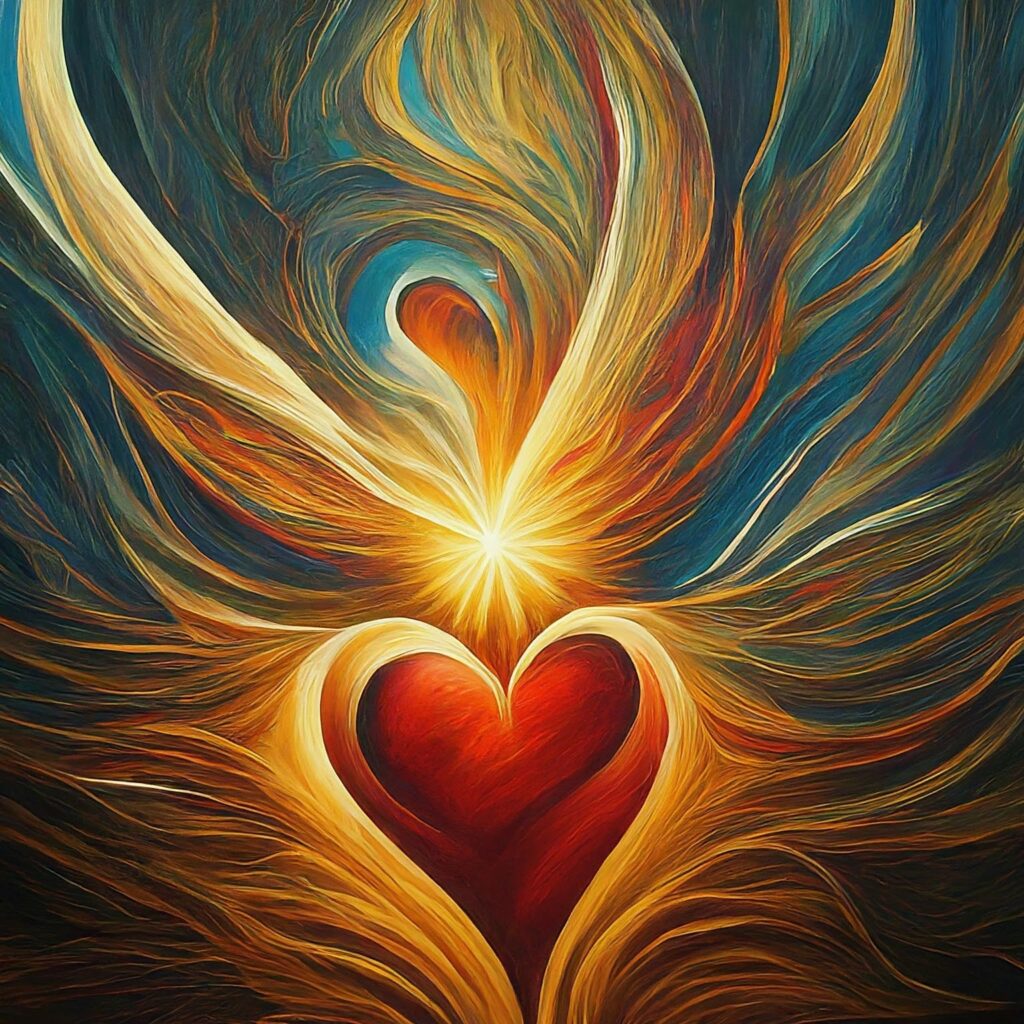
If you are in tune with your discernment, you will find yourself led to divine appointments. These are situations in which you just so happened to be in the right place at the right time. You missed that bus which happened to crash that day. You were off sick the day something serious happened at work. Or, you take a wrong turn and walk into someone you were meant to meet— someone who needed your encouragement in that moment, or someone who was meant to teach you something or bless you in some way. That’s how you know your compass is working as it should. And at that point, you’ll continue to get a little closer to who you were meant to be with every passing day.
Walking The Camino
If you are interested in walking The Camino with us, check out the detailed daily schedule here: https://dancingspirittours.com/journeys/spain/
Frequently Asked Questions
Discernment simply means the ability to judge things well–to weigh different options for any given decision in life. The discernment of spirits, according to St. Ignatius of Loyola, specifically refers to the ability to listen to intuition–the voice that issues forth from your authentic self–and to trust and respond to that intuitive wisdom accordingly.
Intuition is often described as a “gut” feeling. It feels like something that you know in your body and your bones, rather than just in your conscious mind. You can’t always explain how you arrived at an intuitive insight because it’s something that comes from a deeper place than your conscious mind.
Intuition can be understood in some sense as a gift from God because intuition is like an inner compass that points us in the direction that our most authentic self is trying to guide us toward, which is the same direction that God wants us to follow.
Intuition is like a gut feeling that we get about what we should be doing at a given moment, or what decisions we should be making to move in the right direction in life. But oftentimes, we drown that feeling out with long, complex chains of overthinking. Discernment is a skill and quality that allows us to listen to and respond to the calls of intuition without going down that rabbit hole of overthinking things.
Paragraph
Paragraph


